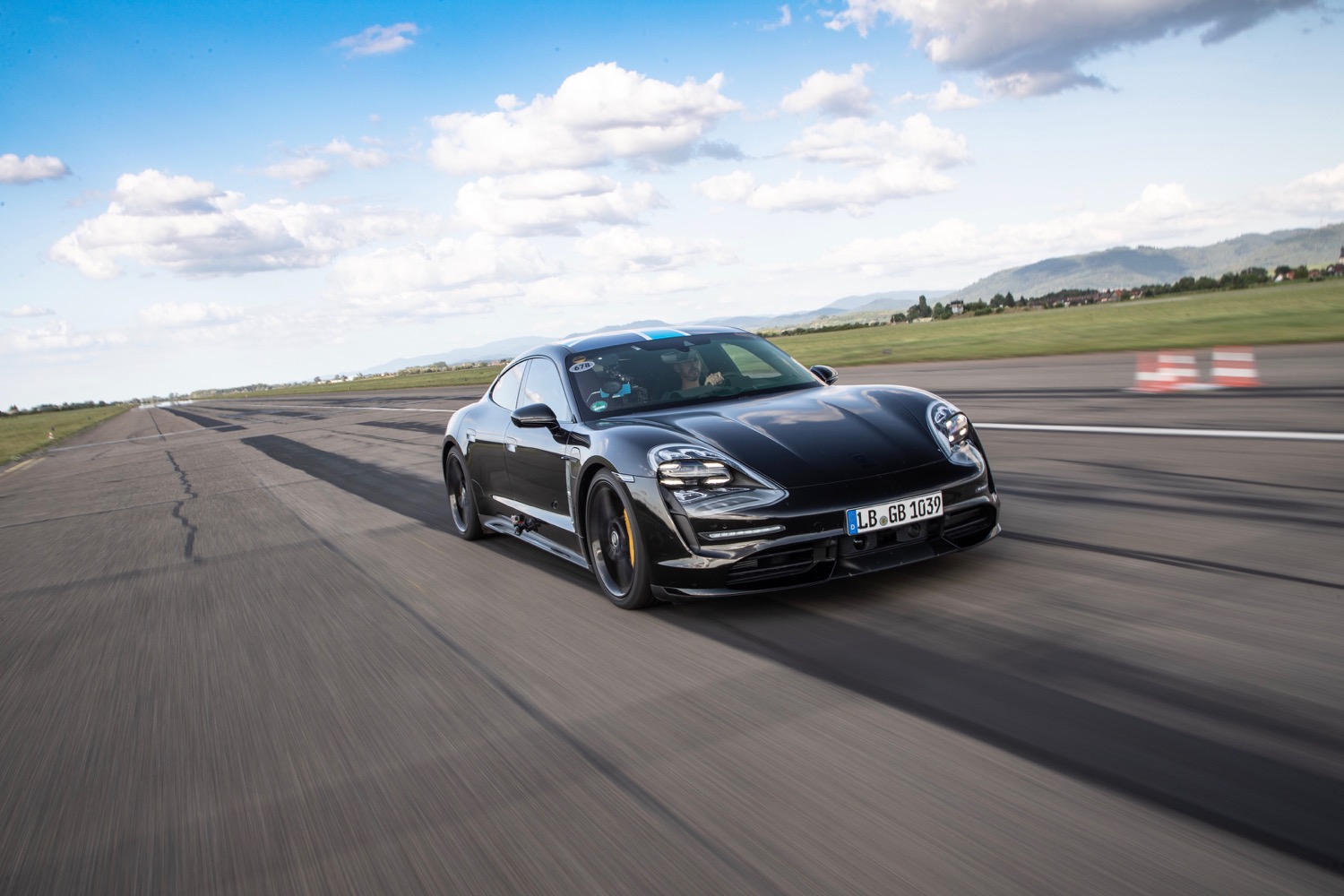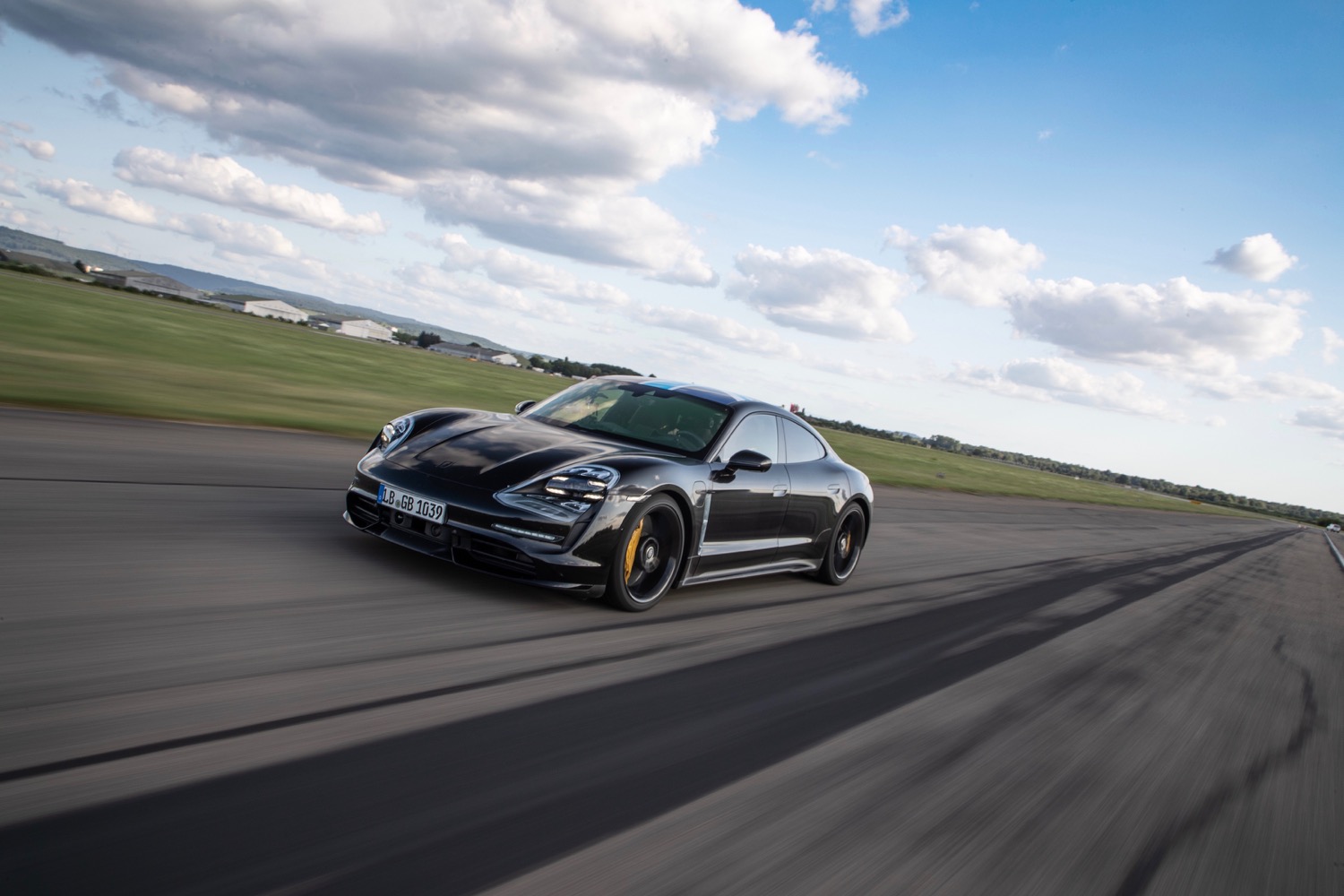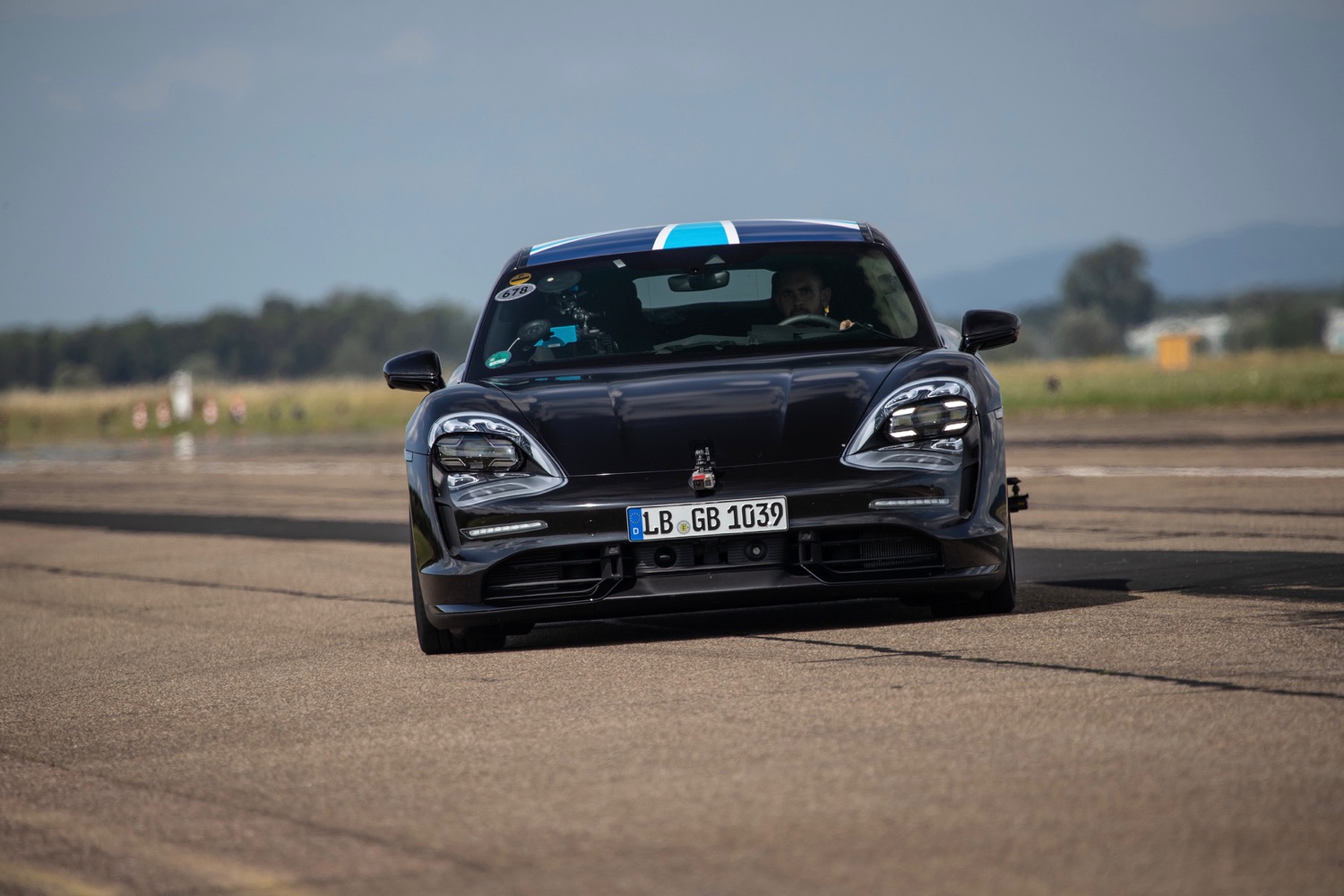The Taycan will be Porsche’s first production electric car, so it will need to offer performance worthy of the Porsche crest. But performance isn’t just about numbers, it’s about repeatability. A quick acceleration time isn’t that impressive if a car can only do it once before needing to cool down. To ensure that wouldn’t be a problem for the Taycan, Porsche subjected a prototype to a torture test.
Porsche took the Taycan (pronounced “tie-con”) to a German airfield that once hosted zeppelin airships, where it was run from 0 to 200 kph (124 mph) and back to 0 again 26 times in a row. The test runs, which were documented by YouTube channel Fully Charged, were run in both directions to account for wind, with an average temperature of 28 degrees Celsius (82 degrees Fahrenheit), according to Porsche.
The results? The average time was just under 10 seconds, with a difference of just 0.8 second between the quickest run and the slowest run, according to Porsche.
That consistency was largely down to the Taycan’s battery-cooling system, according to Porsche. Aggressive acceleration pulls a lot of power from the battery pack, causing it to heat up quickly, so dealing with that heat is crucial to making electric cars go fast (just ask Formula E race teams). Porsche claims the Taycan’s thermal management system was designed with high-performance driving in mind. In addition to keeping the 90-kilowatt-hour battery pack cool, it also provides heat in winter conditions to keep the pack at its ideal operating temperature.
Engineers’ fanatical attention to detail is apparent throughout the Taycan. The motors — one for each axle — use “hairpin winding,” in which wires are bent into a shape that looks like a hairpin, then welded in place with a laser beam. This takes up less space than conventional wiring, allowing for more electricity-conducting copper wire to be packed into a motor, according to Porsche. That not only increases horsepower and torque output, but also makes it easier to cool the motor, the automaker claims.
The Taycan can accelerate from 0 to 100 kph (62 mph) in less than 3.5 seconds, and has a top speed of over 250 kph (155 mph), according to Porsche. It will also employ an 800-volt charging system — the most powerful for any production car so far — which should ensure fast charging. The car has been teased since the original Mission E concept was unveiled in 2015, and is finally expected to make its public debut at the 2019 Frankfurt Motor Show in September.







